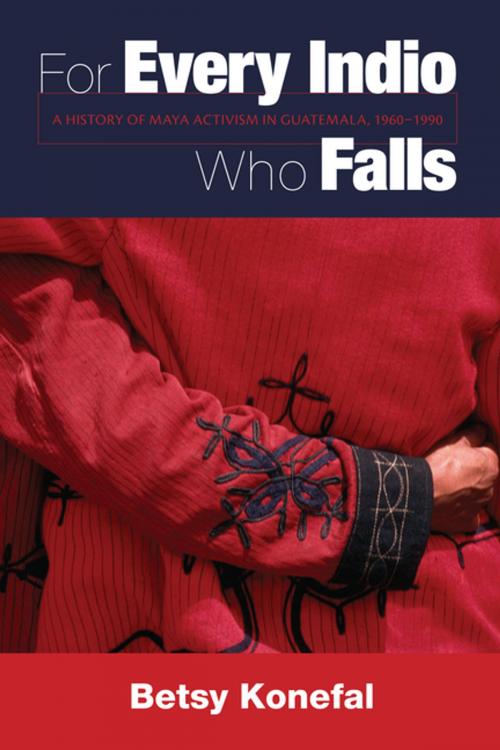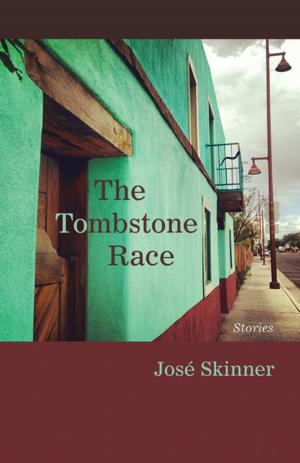For Every Indio Who Falls
A History of Maya Activism in Guatemala, 1960-1990
Nonfiction, History, Americas, Latin America| Author: | Betsy Konefal | ISBN: | 9780826348661 |
| Publisher: | University of New Mexico Press | Publication: | November 16, 2010 |
| Imprint: | University of New Mexico Press | Language: | English |
| Author: | Betsy Konefal |
| ISBN: | 9780826348661 |
| Publisher: | University of New Mexico Press |
| Publication: | November 16, 2010 |
| Imprint: | University of New Mexico Press |
| Language: | English |
In 1978, a Maya community queen stood on a stage to protest a massacre of indigenous campesinos at the hands of the Guatemalan state. She spoke graphically to the dead and to the living alike: "Brothers of Panzós, your blood is in our throats!"
Given the context, her message might come as a surprise. A revolutionary insurgency in the late 1970s was being met by brutal state efforts to defeat it, efforts directed not only at the guerrilla armies but also at reform movements of all kinds. Yet the young woman was just one of many Mayas across the highlands voicing demands for change. Over the course of the 1970s, Mayas argued for economic, cultural, and political justice for the indigenous "pueblo." Many became radicalized by state violence against Maya communities that soon reached the level of genocide.
Scholars have disagreed about Maya participation in Guatemala's civil war, and the development of oppositional activism by Mayas during the war is poorly understood. Betsy Konefal explores this history in detail, examining the roots and diversity of Maya organizing and its place in the unfolding conflict. She traces debates about ethnicity, class, and revolution, and examines how (some) Mayas became involved in opposition to a repressive state. She looks closely at the development of connections between cultural events like queen pageants and more radical demands for change, and follows the uneasy relationships that developed between Maya revolutionaries and their Ladino counterparts. Konefal makes it clear that activist Mayas were not bystanders in the transformations that preceded and accompanied Guatemala's civil war--activism by Mayas helped shape the war, and the war shaped Maya activism.
In 1978, a Maya community queen stood on a stage to protest a massacre of indigenous campesinos at the hands of the Guatemalan state. She spoke graphically to the dead and to the living alike: "Brothers of Panzós, your blood is in our throats!"
Given the context, her message might come as a surprise. A revolutionary insurgency in the late 1970s was being met by brutal state efforts to defeat it, efforts directed not only at the guerrilla armies but also at reform movements of all kinds. Yet the young woman was just one of many Mayas across the highlands voicing demands for change. Over the course of the 1970s, Mayas argued for economic, cultural, and political justice for the indigenous "pueblo." Many became radicalized by state violence against Maya communities that soon reached the level of genocide.
Scholars have disagreed about Maya participation in Guatemala's civil war, and the development of oppositional activism by Mayas during the war is poorly understood. Betsy Konefal explores this history in detail, examining the roots and diversity of Maya organizing and its place in the unfolding conflict. She traces debates about ethnicity, class, and revolution, and examines how (some) Mayas became involved in opposition to a repressive state. She looks closely at the development of connections between cultural events like queen pageants and more radical demands for change, and follows the uneasy relationships that developed between Maya revolutionaries and their Ladino counterparts. Konefal makes it clear that activist Mayas were not bystanders in the transformations that preceded and accompanied Guatemala's civil war--activism by Mayas helped shape the war, and the war shaped Maya activism.















